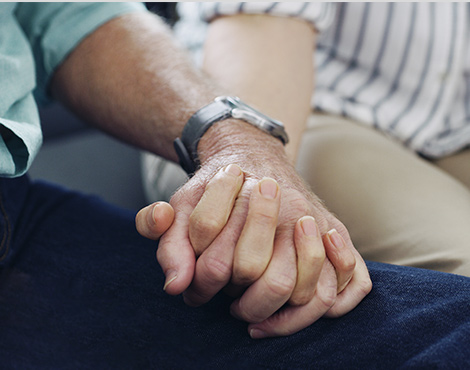Sexuality and Chronic Kidney Disease
It's possible to continue being intimate while on dialysis. Talking about any sexuality issues you may be experiencing is the first step in maintaining intimacy during treatment.

With all the new information coming at you, you may be wondering how to maintain certain familiar aspects of your life. For example, you may feel that sex is important for your physical and emotional wellbeing, but that setting up treatments, managing medications and fulfilling work and family duties leaves little room for intimacy, which is normal.
Issues related to self-esteem, body image and sexual desire are common for people on dialysis. Communicating with your partner and your healthcare team is the first step towards dealing with sexuality issues that may come with having kidney disease.

Being Intimate while on Peritoneal Dialysis (PD)
If you're on peritoneal dialysis (PD), you may feel uncomfortable having sex with dialysis fluid in your peritoneal cavity. Ask your PD nurse if you're able to drain out before having sex. It's possible for you to have sex while on a PD cycler, and you and your partner will be able to find the best way to avoid pulling the catheter. Alternatively, ask your PD nurse if it's possible to come off the cycler to have sex during the night.

Discussing Intimacy with Your Partner
Communicating with your partner about how chronic kidney disease (CKD) is affecting your desire for sex and allowing them to share their feelings and needs is important for maintaining closeness. Discussing the physical and emotional difficulties you might be experiencing can create mutual understanding and gives you the opportunity to handle it in a way that feels comfortable for both of you.
You may feel uncomfortable having conversations about sexuality, but sexual dysfunction is normal for those living with chronic kidney disease (CKD) and talking about it can help reduce stress about this aspect of your relationship.

Lack of Sexual Desire
There are a number of reasons your sexual desire can ebb and flow throughout treatment. You might experience pain, fatigue or hormone imbalances that reduce your desire for sex. You may also experience concerns about body image or sexual performance, causing you to not want to be physically close to your partner.
It's important to discuss these feelings with your partner. If you do not feel comfortable having intercourse, the two of you might consider alternatives that can help you remain physically close.
If you and your partner decide you're comfortable not having sex, it's a good idea to discuss this with your clinician to figure out the underlying cause of your lack of desire.
How to live well with dialysis?

Diet for dialysis patients
A kidney-friendly diet can go a long way in helping you feel and do your best throughout your treatment journey. Learn more about your diet and dialysis.

Exercise for dialysis patients
Staying physically healthy can help you get the most out of your treatment. Learn about ways you can be active while on dialysis.

Travelling on dialysis
It may be possible for you to travel while you're being treated for chronic kidney disease (CKD). Learn more about travelling on dialysis.
